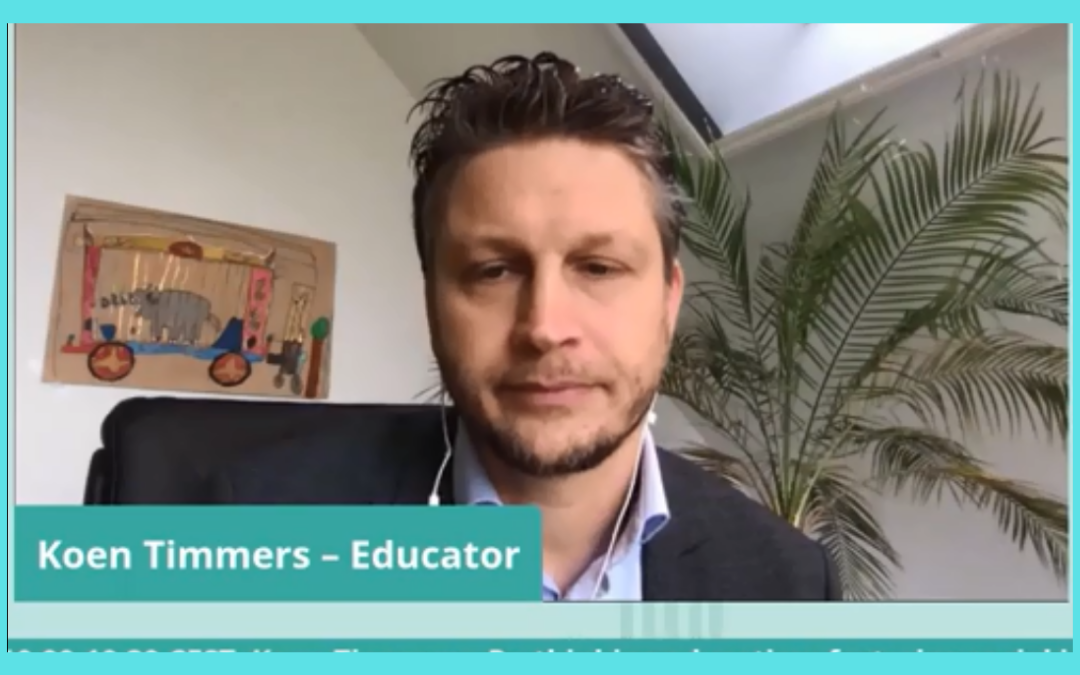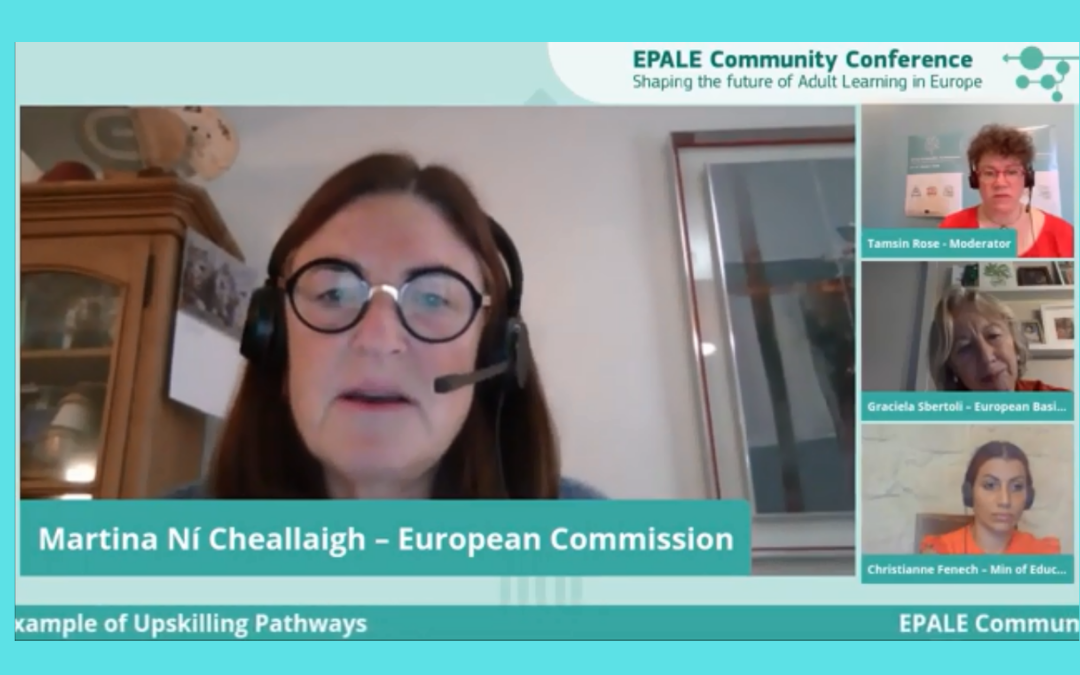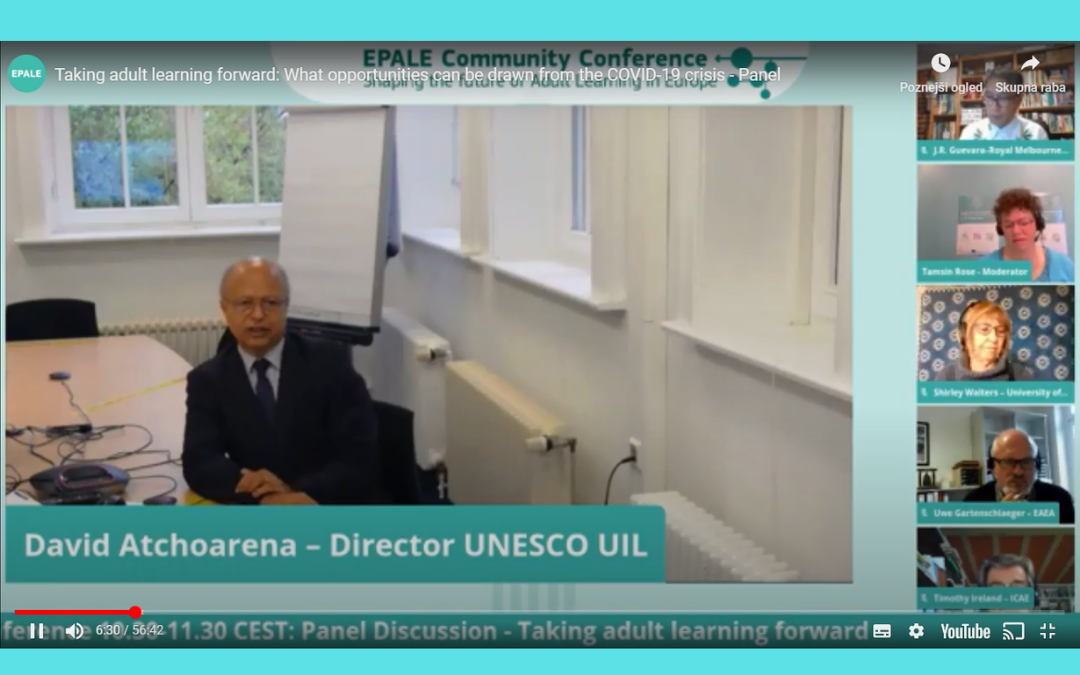This time, the EPALE Community met in a virtual environment
The annual conference has been the central event of the EPALE community for several years. It is where we socialise in person as well as learn about the achievements of this e-platform’s co-creators and about the new challenges brought on by the current European (adult) education policy, among other things. In recent months, the latter has been most affected by the global health situation. It has seemingly resulted in a re-focusing of values, priorities and approaches. Despite the difficulties imposed by COVID-19, adult education is gaining recognition and new opportunities for establishing itself.
This year’s virtual EPALE Community Conference held from 6 to 8 October saw a range of subjects discussed, including the use of modern technology in (distance) education, artificial intelligence, gamification and similar “hot” topics. However, they were all underpinned by the realisation that they are just tools used to address the actual challenges: effective outreach, increased participation of adults in lifelong learning, ensuring fairness, etc. Some of the impressions from the varied selection of conference events are provided in the continuation. You can judge for yourself – thanks to the simplicity of documenting virtual events, all content is available here.
New pedagogy – or andragogy even?
Let me tell you straight away that I do not have a degree in pedagogy, let alone in andragogy. I have been working in adult education for 25 years, though. Over this time, the first lesson I learned after getting a job at SIAE confirmed itself over and over: working with adults requires a different approach!
The participants and their characteristics and needs should take centre stage, the approach should be personalised and the teacher is not an instructor in the classic sense of the word but rather an encourager, a guide of sorts, a supporter of learning that is managed to a large extent by the learners themselves. This sentence is not from 25 years ago; it is a summary of the views shared with us by Koen Timmers, (adult) educator, author and researcher, in his plenary presentation entitled “Re-thinking education: fostering social inclusion”. His key premise is that bringing modern technology into the learning process is not enough nowadays. New pedagogical – or andragogical even (I simply cannot stress this enough) approaches need to be developed (and applied) simultaneously.
Timmers therefore advocates the need for double training of educators at all levels of the education system – with respect to soft skills and the use of digital tools. He is advocating that when teaching subjects, all educators should take responsibility for promoting critical thinking and sound judgement, problem solving, collaborative/team learning and similar soft skills. This is the only way they will be able to help strengthen the all-around resilience of more or less motivated participants coming to the educational process for various reasons and from different backgrounds in the present difficult conditions.
Upskilling pathways during the pandemic
The EBSN representative jokingly said that this situation was and is a great, albeit cruel way to raise awareness about the importance of key competences – especially digital ones. The need for media literacy and critical thinking also became clearer, as we were suddenly confronted with a host of false information.
We were all a little better prepared for the second wave of COVID-19. Training educators, establishing appropriate platforms, flexibility and adaptability of didactic approaches while simultaneously ensuring quality – all this should strengthen both the education system and its participants. The EC now offers various resources in this respect (see article).
How can the EPALE community help? Through educator training (MOOC and OER sections in the EPALE platform), mutual professional support, camaraderie and the development of digital resources. These are just some of the ways to be of mutual assistance.
Where do we go from here?
What insights in education, sustainable development, social fairness and cohesion and democratic values have we achieved in the past year? We received replies from all around the world, as the threads of the panel discussion entitled “Taking adult education forward” were woven between Australia, South Africa, the UIL in Hamburg, the International Council for Adult Education (ICAE) based in Latin America, and the EAEA in Brussels.
In response to the question of what they thought about the new European Skills Agenda and its transferability to other environments, the speakers all agreed on the necessity to adopt a holistic approach that supports a multitude of transitions (not just a digital and a green one) from the former to the new era. Not only are new tools essential, but a different organisation is also needed. This also includes a different learning-to-learn competence. Adult education and learning should support the strengthening of resilience (author’s comment: resilience is the latest buzzword in political jargon) of the individual and society. The purpose of this is not only to adapt to new conditions but also to combat threatening factors and (co-)create new patterns of living.
Representatives of the Global South (Australia, South Africa and Latin America) drew attention to the fact that COVID-19 further deepened social inequality. People living in severe poverty do not have basic necessities, let alone computers and access to the internet, which is where life and work have now moved. Women, migrants, young people, indigenous populations and prisoners are the most affected. In these parts of the world, challenges in adult education are not related to the same skills as in Europe – these parts are all about survival. There is also the eternal question: how to distribute the world’s wealth more evenly?
From this point of view, the European representative’s request for adequate funding of the actions of the Skills Agenda seemed somewhat incongruous, perhaps even presumptuous. I found myself agreeing more with the more up-to-date picture painted by the ICAE representative, with the thesis that the pandemic triggered a need to establish or strengthen communities. They should function in a new (or even the original) way – based on solidarity, creativity, adventurous spirit … And using slightly forgotten media – radio and television, if there are no other more modern options.
I also liked the appeal for not only a global, but a planetary citizenship, which should be built upon respect for diversity and the pursuit of common growth where no one lags behind. It is exciting to think that adult education can play a driving role in all this, and it keeps me confident that I am in the right (work) place.
Zvonka Pangerc Pahernik, MSc (zvonka.pangerc@acs.si), SIAE





